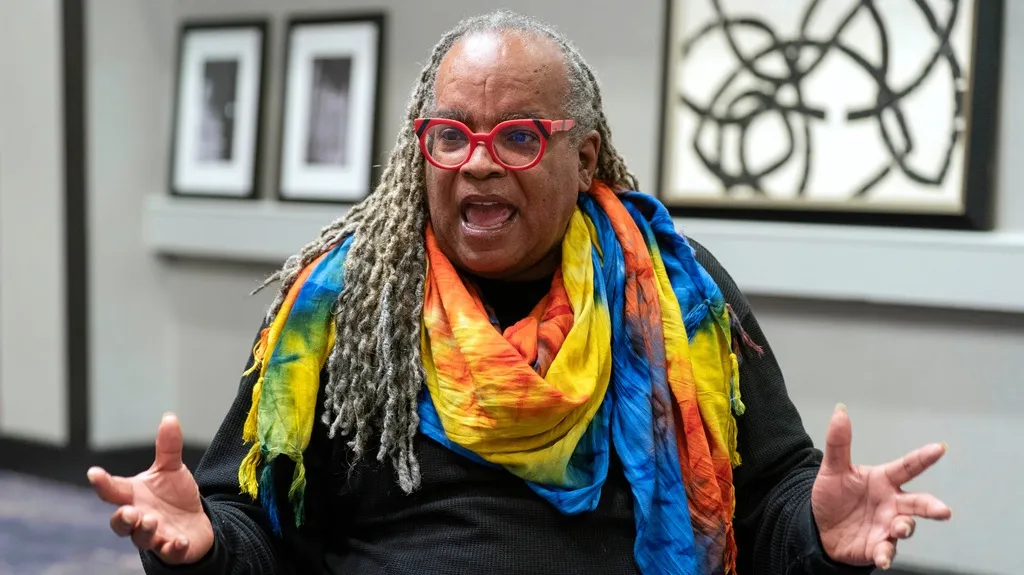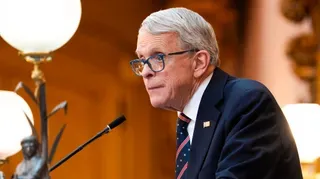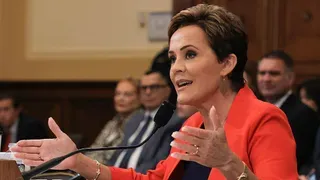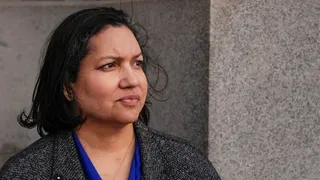December 11, 2012
Out on the Street Europe: Are LGBT Rights Good for Business?
Ed Mickens READ TIME: 6 MIN.
It may not seem particularly remarkable for 180 or so international bankers to convene in London, even if they are very senior and represent 16 major banks. A welcome from the Lord Mayor, a letter of support from the U.S. Secretary of State, a keynote by a high-ranking Balkan leader. Yet, add the fact that the overwhelming majority of these bankers are openly gay and lesbian, with the remainder identified as "straight allies," and the picture takes on a very different meaning.
This was the Out on the Street London Summit, held on Nov. 13. It wasn't the first conference for senior LGBT bankers. Out on the Street put that together in 2011 in New York and followed up with a second in May 2012, hosted by Bank of America.
"There was so much interest and recognition of the need, that banks wanted more," said Todd Sears, founder of Out on the Street. "There was so much support for bringing the conference to Europe, we were able to put the London summit together in just four months. People were so excited to make it happen."
Sears, a former career banker, is a New York-based diversity consultant who recognized that, to have impact, issues must be addressed as part of the business function.
"The human resources department can be supportive, but it doesn't drive change," he said. The core of any diversity effort has to be a belief that attracting and retaining the best talent is the key to success. Sears chose to keep the focus of Out on the Street on senior management, preferably director level: About 75 percent of its members are "managing directors or higher," he said.
In a sense, Wall Street is catching up. Twenty years ago, when many important corporations -- especially in technology, entertainment, retail and health care -- launched efforts at LGBT inclusiveness, being out in the financial services sector was still widely considered career suicide. As recently as 10 years ago, it was considered "too political."
What changed? "It's a reflection of social changes," Sears said. "Wall Street has to be fast and nimble, or it won't make any money. It's an industry that relies on human capital. You need smart, innovative people."
Turning Liabilities Into Assets
Thus, it's worth investing time in a discussion called "The XX Factor: Gay Women in Banking," which turned out to be one of the most popular at the London Summit. A dazzling panel of high-achieving lesbians from Goldman Sachs, Morgan Stanley, UBS and Bank of America Merrill Lynch told their stories of where the personal meets the professional. One of the lessons?
Being an out lesbian has an advantage: It takes sexual tension -- often the bane of straight-women colleagues -- off the table. A different orientation has long been considered a liability. Now we're beginning to see it as an asset.
"For me, hearing LGBT panelists talk about what it was like, in the office and in meetings with clients, before they came out was incredibly powerful," said Birgit Neu, the London-based head of private banking Initiative for HSBC Bank. "I think we all left the event with clarity about how much time and energy is wasted, and how disengaging it is, when LGBT staff aren't comfortable with bringing their whole selves to work.
"I wanted to be involved in Out on the Street Europe because I believe it's important for the financial services sector to develop a better collective understanding of where it stands on this topic, both internally and commercially," she added. "We [at HSBC] had a wide range of participants involved, from members of our Pride Network to straight allies in senior management. There are lots of discussions going on now, about what we're going to implement to address many of the issues raised. ... So Out on the Street Europe has been a great catalyst."
While the summits offer a high-profile opportunity to educate the highest precincts of capitalism -- and, not incidentally, creating some choice networking opportunities for LGBT movers and shakers -- Out on the Street has already spawned several ongoing efforts. An "emerging leaders" program matches LGBT employees with career sponsors, based on the old-boys' model already adapted by straight women and other minorities in the business.
"Not like mentors who give advice once a month over lunch," Sears said. "It is a sponsor who looks out for you, uses leverage, has your back."
There's also a planned series of white papers, issued with HRC and other groups, that look at the economic costs to business of LGBT equality (or lack of it). An effort is under way to create a program of support and capital for LGBT-owned small businesses.
But there are more tantalizing possibilities that open up a sense of expansion that the London Summit represents. It's wonderful and welcoming to hear the Secretary of State Hilary Clinton proclaim, as she did recently, that "LGBT rights are human rights," but are they also good for business?
Bloomberg BusinessWeek reported Nov. 30: "More than 445,000 people around the world have joined a campaign urging Citibank and Barclays to publicly condemn" Uganda's pending legislation known as "Kill the Gays." Citibank and Barclays are corporate members of Out on the Street, and both have significant operations in Uganda. What will they do? And what will they and other global banks do about the harsh, if not as lethal, new anti-gay laws in Nigeria? Or the legal environment in Singapore?
For now, Out on the Street is, according to Sears, "identifying regional issues." It is planning more summits in the U.S. and Europe next year, and will hold its first Asian Summit, in Hong Kong, in 2013.
Ed Mickens began researching LGBT workplace issues more than two decades ago and published "The 100 Best Companies for Gay Men and Lesbians" in 1994. He is currently traveling the country, interviewing and collecting stories for a new project on the Boomer generation of gay men. He blogs at www.gaymansprogress.com.






